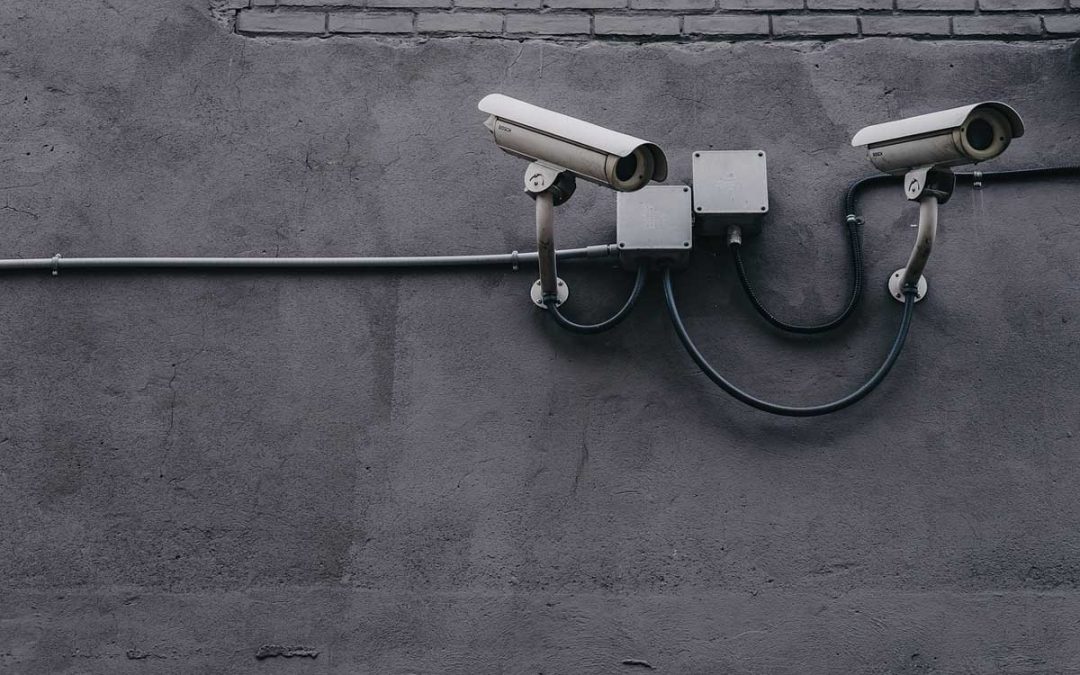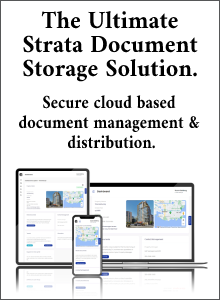
5 Reasons why using AI for Property Management is a Competitive Business Advantage
AI for property management in BC refers to the use of artificial intelligence technologies to streamline and automate various aspects of property management, such as collecting fees, maintenance requests, strata owner communication, and data analysis. By leveraging machine learning algorithms, chatbots, and other AI-powered tools, property managers can improve efficiency, reduce costs, and provide a better tenant experience.
AI can also help property managers make more informed business decisions by providing valuable data insights into strata owner behavior and preferences. With the increasing adoption of AI in the real estate industry, property managers in BC can leverage this technology to stay competitive and provide the best possible service to their tenants.
We present 5 reasons why it’s a good idea to adapt the technology to stay competitive.
Reason #1: Increased Efficiency
AI has the potential to automate many of the routine tasks associated with property management, such as fee collection and maintenance requests. This can lead to increased efficiency and productivity for property managers, while also improving the strata owner experience.
For example, AI-powered chatbots can be used to handle routine requests such as maintenance and repair requests. Chatbots can be programmed to handle a wide range of strata owner requests, from simple inquiries to more complex maintenance and repair requests. This allows strata owners to quickly and easily submit their requests through a chat interface, without the need for phone calls or emails.
Chatbots can also provide 24/7 support, allowing tenants to submit requests and receive responses outside of traditional business hours. Strata owners can simply submit their request through the chatbot, which can then prioritize and schedule the request based on urgency and availability. This eliminates the need for manual triage and scheduling, freeing up strata managers to focus on more strategic tasks.
Additionally, chatbots can help to reduce the risk of errors and miscommunication that can occur with manual tasks. Chatbots can provide consistent and accurate responses to owner and tenant inquiries, ensuring that all requests are handled promptly and efficiently.
Similarly, AI can also be used to automate payment collection and payment tracking. Strata managers can set up automated reminders and alerts, reducing the risk of late payments and the need for manual follow-up. This can also help to improve cash flow and reduce the administrative burden associated with manual rent collection.
In addition to these benefits, AI can also provide strata managers with valuable insights into tenant behavior and preferences. By analyzing data such as maintenance requests, rental histories, and communication patterns, AI algorithms can identify trends and patterns that can help management and council to make more informed decisions about property maintenance and leasing strategies.
Overall, AI has the potential to significantly improve the efficiency and effectiveness of strata management by automating routine tasks and providing valuable data insights. By handling these tasks through a Chatbot, strata managers can save time and resources that would otherwise be spent on manual triage and follow-up.
Reason #2: Better Strata Owner Experience
By using AI for property management, chatbots can be programmed to handle routine inquiries such as maintenance requests and billing inquiries. This can help to reduce response times and provide more timely support to strata owners. In addition, chatbots can use AI algorithms to provide personalized recommendations based on the individual needs and preferences of strata owners, which can improve their satisfaction and retention rates.
AI can also be used to provide more personalized communication through targeted messaging and notifications. Strata managers can use AI algorithms to analyze data such as usage patterns and behavior to provide more targeted and relevant communications to their clients. For example, strata managers can use AI to identify strata owners who are at risk of missing a payment and provide targeted reminders and notifications to ensure timely payment.
AI can also be used to improve strata management satisfaction and retention rates by providing valuable insights into strata owner behavior and preferences. By analyzing data such as maintenance requests, complaints, and other feedback, AI algorithms can identify areas of improvement and help strata managers to make more informed decisions about their operations. This can lead to improved satisfaction and retention rates by addressing issues before they become major problems.
AI can be a powerful tool for improving the strata owner experience and enhancing strata management satisfaction and retention rates. By leveraging AI-powered chatbots, targeted messaging, and data analytics, strata managers can provide more personalized and efficient service to their clients, leading to improved satisfaction and retention rates.
Reason #3: Cost Savings
AI can help strata managers in BC save money by reducing labor costs and minimizing the risk of human error in property management. By automating routine tasks and streamlining processes, strata managers can save time and money, while also improving the accuracy and consistency of their operations.
For instance, when using AI for property management, chatbots can be programmed to handle routine inquiries from strata owners, such as maintenance requests and billing inquiries. This can eliminate the need for manual follow-up and reduce labor costs associated with handling these tasks. Similarly, AI can be used to automate routine administrative tasks, such as sending notifications, scheduling meetings, and updating records, further reducing the need for manual labor and streamlining operations.
By using machine learning algorithms to analyze data such as financial reports, maintenance history, and other operational data, strata managers can identify trends and patterns that may be missed by human analysis. This can help strata managers to make more informed business decisions and optimize their operations, ultimately reducing expenses and increasing profitability.
Moreover, AI can help to reduce expenses in strata management by optimizing maintenance and repair schedules. By using predictive analytics to identify potential issues before they become major problems, strata managers can reduce maintenance costs and minimize the risk of unexpected repairs. Similarly, AI algorithms can optimize energy usage and reduce utility costs, further reducing expenses and improving profitability.
Reason #4: Improved Data Analysis
By using AI, strata managers can collect and analyze data on strata owner demographics, including age, income, and household size. This information can help strata managers to better understand their target audience and develop more effective marketing and communication strategies. AI algorithms can also be used to analyze data on the insurance rates of similar buildings in similar locations, helping strata managers to benchmark their insurance costs and identify opportunities for cost savings.
In addition, AI can be used to collect and analyze data on maintenance history, rental rates, and other operational data, providing strata managers with valuable insights into their operations. By analyzing this data, strata managers can identify areas of improvement and optimize their operations to reduce costs and improve efficiency. For instance, by analyzing maintenance data, strata managers can identify common issues and develop preventative maintenance strategies to minimize the need for repairs and reduce expenses.
Moreover, AI can be used to provide predictive analytics, which can help strata managers to anticipate issues before they become major problems. By analyzing data on past maintenance and repair issues, AI algorithms can identify potential issues and provide strata managers with alerts and recommendations to address them before they escalate. This can help strata managers to minimize downtime, reduce expenses, and improve tenant satisfaction.
Reason #5: Increased Competitiveness
AI can help strata managers in BC stay competitive by improving efficiency, tenant experience, cost savings, and data analysis. By automating routine tasks, providing personalized communication, and leveraging data analytics, strata managers can improve their operations, reduce costs, and provide a better experience for their clients.
By using AI-powered chatbots and targeted messaging, strata managers can improve responsiveness and provide personalized service to their clients, leading to improved tenant satisfaction and retention rates. AI can also be used to optimize operations, reduce expenses, and minimize the risk of human error, further improving profitability and competitiveness.
Some strata management companies have successfully implemented AI to improve their operations and gain a competitive edge. For instance, a B.C.-based real estate company has implemented an AI-powered chatbot to handle routine tenant inquiries and maintenance requests, reducing response times and improving tenant satisfaction. Another strata management company has implemented AI to analyze maintenance data and optimize maintenance schedules, leading to reduced maintenance costs and improved efficiency.
In summary, by leveraging AI-powered tools and platforms, strata managers in BC can improve their operations and stay competitive in a rapidly evolving market. By providing a better tenant experience, reducing costs, and optimizing operations, strata managers can improve tenant satisfaction and retention rates, leading to improved profitability and long-term success.
Not Legal Advice - The material provided on the StrataPress website is for general information purposes only. It is not intended to provide legal advice or opinions of any kind and may not be used for professional or commercial purposes. No one should act, or refrain from acting, based solely upon the materials provided on this website, any hypertext links or other general information without first seeking appropriate legal or other professional advice. These materials may have no evidentiary value and should be checked against official sources before they are used for professional or commercial purposes. Your use of these materials is at your own risk.





